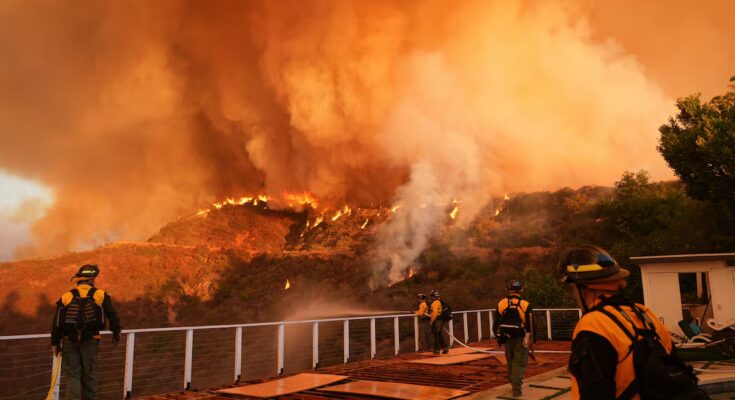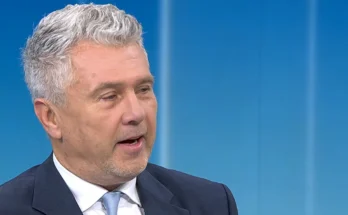The leaders’ conference in the Brazilian city of Belém, which serves as a prelude to this year’s climate summit, COP30, began this Thursday under the indisputable weight of data: 2023, 2024 and 2025 are the three warmest years recorded so far. The main cause is found in fossil fuels and the greenhouse gases they release. The concentration in the atmosphere of the main one, carbon dioxide (CO₂), grew at a record speed last year. According to António Guterres, Secretary General of the United Nations, 2025 will once again reach a level never seen before.
The Portuguese politician was tasked with opening, together with Brazilian President Luiz Inácio Lula da Silva, this leaders’ conference, which will last two days and in which 53 heads of state and government are expected to participate. “The climate crisis is accelerating,” Guterres warned in his opening speech. “Unprecedented forest fires, deadly floods, superstorms…” he listed.
The UN Secretary General referred in his speech to the report of the World Meteorological Organization (WMO), presented this Thursday in the framework of the Belém conference. This document, in addition to confirming that the concentration of emissions in the atmosphere has continued to increase this year, indicates that 2025 will end as the second or third warmest year recorded so far. 2024 takes first place, and what is not yet clear is whether second place will finally be for 2025, replacing 2023.
In any case, what is already clear is that these last three years are certainly the three warmest, at least, since direct measurements began 176 years ago. The clues obtained, for example, from the study of vegetation, also suggest that temperatures have not been this high for thousands of years.
But it is not just a problem of average temperatures, but also of disasters becoming more frequent and intense on a warmer planet. “Every day we witness a destructive climate,” warned Celeste Saulo, secretary general of the WMO. For example, the “within minutes” decrease in the amount of rainfall that would normally occur over several months. This is what happened a year ago in Spain, with the onset of the deadly cold.
“We cannot defy the laws of physics. Science does not lie. The alarming series of exceptional temperatures continues,” warned Saulo. To dispel any doubt, Saulo recalled that this warming is due to the fact that “the concentrations of heat-trapping greenhouse gases are the highest in the last 800,000 years, thus committing our planet towards a hotter and more dangerous future”.
Guterres, for his part, directly indicated the main culprits of this climate change, which is also occurring at a much greater speed than the previous ones that the planet has experienced: fossil fuels. “Too many companies are making record profits from climate devastation. Too many leaders remain captive to fossil fuel interests, instead of protecting the public interest,” he said.
As Guterres recalled, in another summit, the one in 2023 in Dubai, what had so far been impossible in three decades of negotiations was achieved, namely a direct reference to fossil fuels and the need to abandon them. “We must turn this commitment into action, ensuring that low- and middle-income developing countries that rely heavily on fossil fuels receive the support they need to develop their transition pathways,” called the UN Secretary-General. But far from it, governments continue to flood this sector with public money, which also enjoys “political support”, something that has been described as “self-destructive”. “A bet on fossil fuels is a bet against humanity and its own economies. Every dollar invested in fossil fuel subsidies is a dollar taken away from our health and shared future,” he added.
The 1.5 degree barrier
The leaders of four of the five main greenhouse gas producing economies on the planet: the United States, China, India and Russia, will not participate in the meeting that begins today in Belém. The last three send delegations, but at a lower level. The fifth, the European Union, is represented by the presidents of the Commission, Ursula von der Leyen, and of the Council, António Costa, and by several leaders. Among them, Emmanuel Macron (France), Friedrich Merz (Germany) and Pedro Sánchez (Spain), plus Keir Starmer (United Kingdom). In addition to the speeches of the leaders, these two days will include thematic sessions dedicated to jungles and oceans, the energy transition (in which Pedro Sánchez intervenes) and the tenth anniversary of the Paris Agreement.
That pact, signed on December 12, 2015 in the French capital, set the goal that the temperature increase should not exceed 2 degrees Celsius compared to pre-industrial levels, that is, before the massive use of fossil fuels began. And, as far as possible, it should not exceed 1.5.
But that limit of 1.5 degrees was reached on time in 2024. Guterres recalled today that it is now “inevitable” that it will be exceeded steadily “since the beginning of the 1930s”. As the IPCC, the group of experts that lays the foundations of scientific knowledge, underlined in 2022, the only possibility of achieving the most ambitious Paris target would be if this overshoot was temporary and achieved. at some point reverse course, for example, with techniques to remove carbon dioxide from the atmosphere or minimize methane emissions, which does not seem realistic at the moment.
“Even a temporary overshoot will unleash much greater destruction and costs for all nations,” Guterres warned. “Every year, temperatures above 1.5 degrees will hit economies, deepen inequalities and inflict irreversible damage, and developing countries that have caused the least will be the hardest hit,” he added. “It is a moral failure and fatal negligence.”



